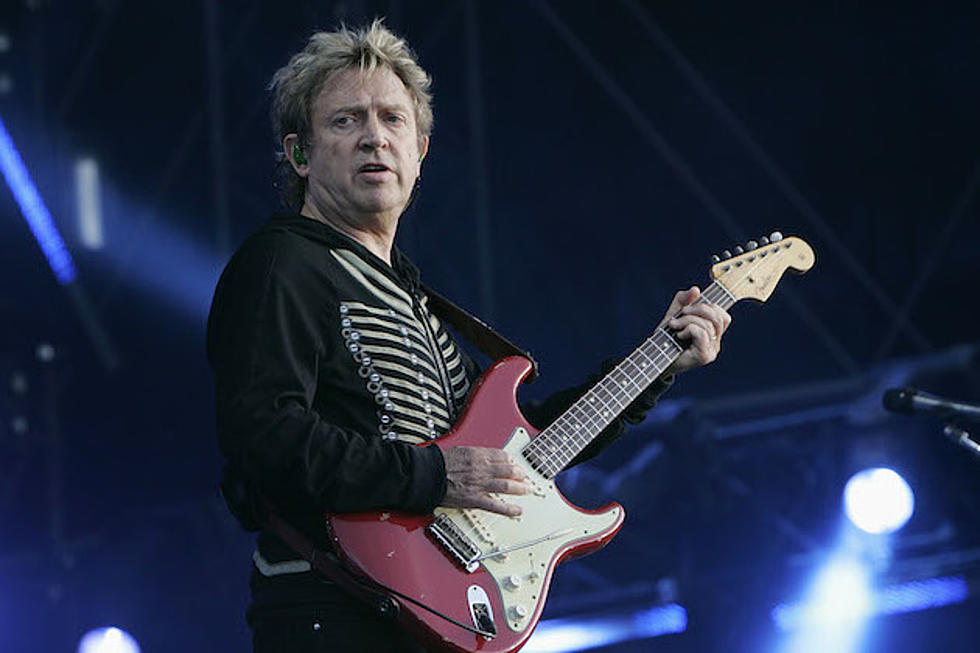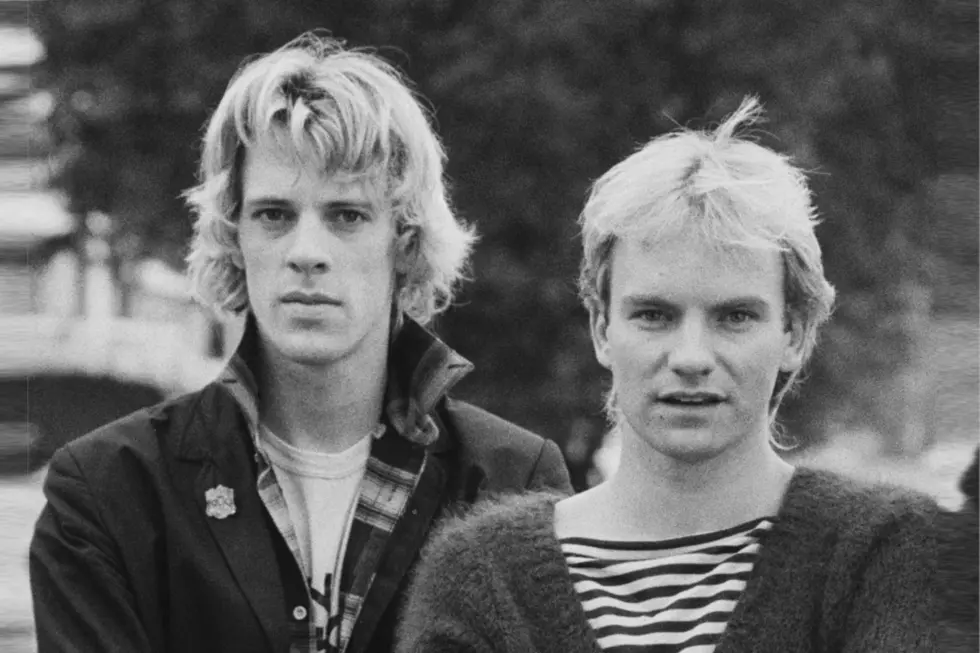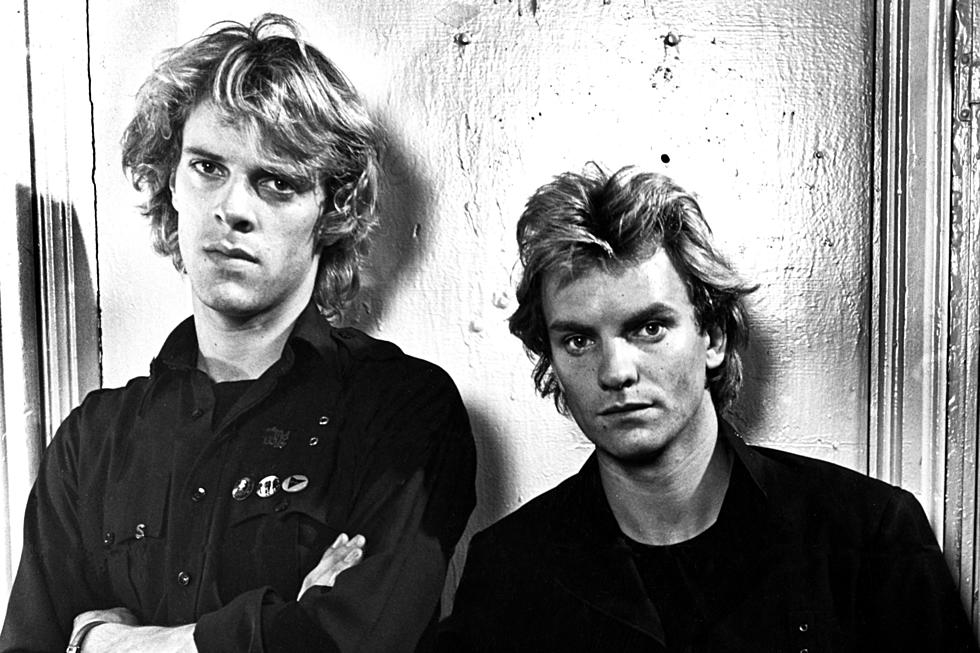
Exclusive: Andy Summers’ Circa Zero Aims To Create ‘Very Fresh Classic Rock’
Since his time in the studio with the Police ended, Andy Summers has dabbled in a number of musical adventures - including, but not limited to, jazz, vocal, world and experimental. But a one-off tour with Sting and Stewart Copeland some six years ago sparked an urge to return to rock.
"You know, I've made a lot of records over the years, all kinds of arty records," Summers tells Ultimate Classic Rock. "That wasn't the idea here. It was to make a record with big hooks and songs."
Problem: Sting was headed straight back to his own solo career. That left Summers in search of a new home for his memorably resonant guitar musings. He searched and searched, looking for just the right collaborator, until a friend's management client came on Summers' radar: Rob Giles, then with a Los Angeles-based band called the Rescues, had just the right chemistry - a chemistry that eventually led to the founding of a new group called Circa Zero.
As promised, Circa Zero's forthcoming debut album (called 'Circus Hero,' after a disc jockey's on-air flub of the name) will play it straight, fun and loud. Nothing cutesy, nothing dissonant -- nothing, in short, that could be called "alternative."
"As far as it goes, we said: 'Let's make a rock record,'" Summers adds. "And when say I rock record, that's what we meant. We didn't mean a sort of weird, alternative indie record by people who can't really write songs. We aren't really into that. We both knew we could write very well. We wanted to make a record that's got hooks, but at the same time, we wanted it to be edgy. You know, it's a rock band. We're not pretending it's something else. We're going to go and do rock -- with guitar, bass and drums. That was the guiding rule for us."
Due March 25, the new Circa Zero album can't help but recall the three-piece joys of Summers' time with the Police, who recorded from 1978-83 before calling it quits. The Rock and Roll Hall of Fame came calling in 2003, followed five years later by a globe-spanning reunion tour that went from May 2007 through August 2008.
Summers cops to the comparison, but says he and Giles - who were joined on the recording by Canadian drummer Emmanuelle Caplette - were looking for something that advanced what they had done before, while avoiding anything that felt too of-the-moment.
"We wanted something that sounded almost like very fresh classic rock -- you could call it that, in a way," Summers says. "You could imagine hearing these songs on the radio. It has a timeless feel, but it's a whole new batch of songs. It's all in there."
Songs like the advance single "Leviathan" have a harder edge than Summers typically unleashed with the Police, but the guitarist is quick to add that this isn't metal: "You know, what we found was, we weren't as heavy as the Foo Fighters, or anything like that. Our thing tends to be edgy, but at the same time quite lyrical and structured - rather than just head-banger music. There's a bit more to it than that."
Circa Zero completed the album some time ago, and then had to cool their heels before it was finally set for release. That's led to a backlog of subsequent songs that will one day fill the group's follow-up recording.
"This record was done over a period of about six months -- but it didn't take six months," Summer says. "We worked on it, on and off, whenever we could get together. We just slowly upped the ante on all of the tracks, until we felt we were really there. What took longer was finding the right management agency, and then from there getting the record company. Then the record company said, 'Oh, let's put it out in six months.' That was just soul destroying. We were like, 'Can't we put it out right now?' So, it's all of that side of it -- the framework, the business side of it, that has taken much longer. Anywhere, we're virtually there now, so we'll see what happens now. This summer, hopefully, we'll be off and running."
That, however, doesn't necessarily mean a string of dates in your local dive bar, all in the hopes of securing a new audience for Circa Zero. Summers says the internet age - one that arrived well after the Police's hey day - has changed all of that.
"My attitude about it now is, I don't really see the point in killing yourself playing in tiny little unknown places for years on end," he adds. "I think we should get some videos on YouTube. There's a lot of hit songs on this album. We should really try and make it happen that way, and see if we can get started at a big level. Perhaps we could open on a big tour, with someone who is going to draw a big crowd right away -- and it will all get revealed. That's my, I hope, not naive hope. I don't see why that should be all that impossible."
More From Ultimate Classic Rock









